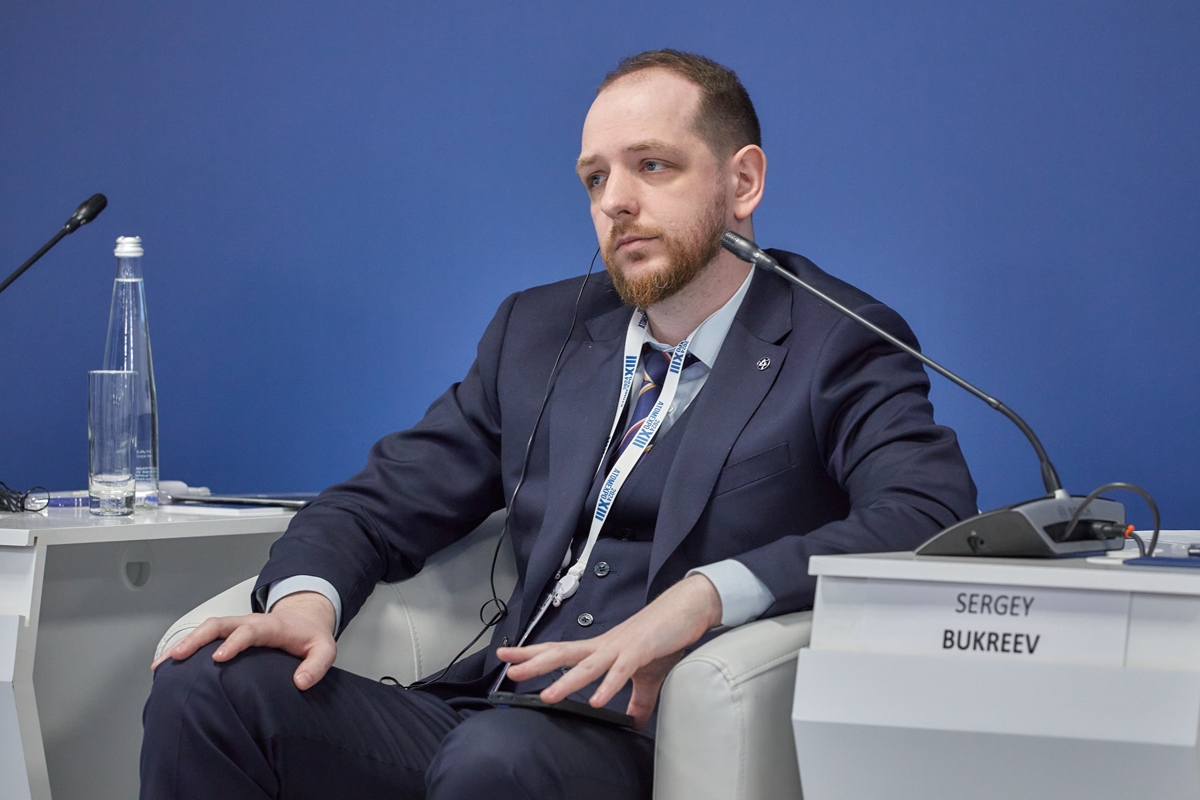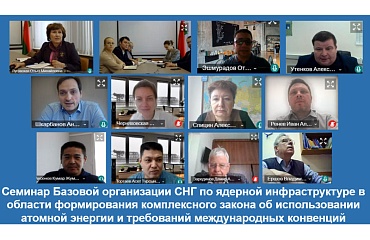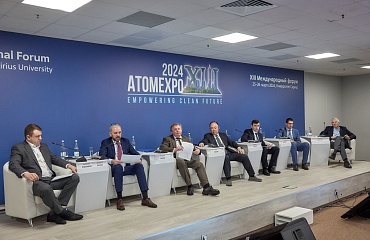The round table "International industrial and educational projects: from theory to practice" became an important event of the educational track at ATOMEXPO-2024 International Forum on March 25

It brought together representatives of the nuclear industry, as well as universities, specialized ministries and authorities of partner countries. The speakers at the event were Mshiu Elisante Elisaimon, Dean of the School of Mining Engineering and Geological and Geophysical Sciences at the University of Dar es Salaam (Tanzania), Valery Karezin, Director of Educational Projects at Rosatom State Corporation, Stepan Kalmykov, Vice President of the Russian Academy of Sciences, Sergey Bukreev, Director of GET LAB LLC, Zoltan Silvashi, Rector of the University of Debrecen (Hungary), Alexis Ruhinda, representative of the Rwanda Atomic Energy Board, and others. The moderator was Dr. Niklaus Vetter from the Nuclear Energy Research Institute (IPEN, Brazil).
The participants discussed the formats of inter-university cooperation and interaction with business partners, which not only allow to develop the national educational infrastructure, but also promote technologies to new markets. The special attention during the discussion was paid to issues of students practical training through the interaction of universities and industrial partners.
Valery Karezin spoke about Rosatom's experience and competencies in interaction with core universities in the field of personnel training and developing a business-university interaction system. In particular, he noted: “More than 2000 foreign students from 65 countries are currently studying nuclear and related specialties in Russia, with more than 500 foreign students annually undergoing practical training at Rosatom enterprises and resource centers. The practical skills that foreign students acquire during their training in Russia will enable them to successfully implement high-tech projects in their country, successfully developing national nuclear programs”.
Mshiu Elisante Elisaimon noted: “Geology and mining education in Tanzania is undergoing major changes. Transformation aims to bring the industry together at a round table and invite them to join academia in training. We are making the process formal by developing guidelines that we will follow during implementation. At the same time, we are joining forces with representatives from the industry to implement geology and mining projects together in order to create more opportunities for our students where they can obtain skills as student interns or trainees before employment. Guidelines such as the creation of industry advisory committees will help to reduce the gap between industry and academia, and we've already seen that it's starting to work”.
Niklaus Vetter summarized the event: "The understandings, ideas and solutions generated during this event dedicated to bridging the educational gap between universities and industry are a testament for our shared commitment to promote education in nuclear and related industries. The problems are significant, but from a global community perspective it has been demonstrated that we are well prepared to solve them, and some great examples were announced at this meeting”.
The participants at the end of the round table noted the special importance of cooperation between universities and industry representatives in a wide range of specialties. The network interaction format between Russian universities and partner countries universities, as well as businesses of the two countries (including relevant ministries and authorities) was recognized as the most effective format to train specialists with the necessary competencies required in the labor market of the partner countries.
Reference:
State Atomic Energy Corporation Rosatom is a multi-purpose holding company that combines assets in power engineering, machine building, and construction. Its strategy is to develop low-carbon generation, including wind power. State Atomic Energy Corporation Rosatom is the national leader in electricity generation (about 20% of total generation) and has the first place in the world by order book for NPP construction (33 power units in 10 countries).
State Atomic Energy Corporation Rosatom offers foreign customers a comprehensive solution providing access to the entire line of products and services throughout the NPP lifetime. It includes not only the NPP construction using Russian technologies, but also the creation and development of nuclear infrastructure in the country; help to develop the relevant legislative base; training and re-training of national personnel; involvement of local industry in the project; fuel supply and maintenance of NPP; support for its operation; spent nuclear fuel (SNF) management; and ensuring public acceptance of nuclear energy.
The Association of Higher Education Institutions "Consortium of Supporting Higher Education Institutions of Rosatom State Corporation" was established in the Russian Federation on Rosatom's initiative. This is a community of higher education institutions organized to coordinate activities in the nuclear industry interests in higher, postgraduate and additional professional education, as well as in the scientific sphere. The Consortium consists of 20 specialized universities, including Bauman Moscow State Technical University (a national research university); Moscow Institute of Physics and Technology (a state university); the National Research Moscow State University of Civil Engineering; and the National Research State University of Nizhny Novgorod named after N. I. Lobachevsky; National Research Nuclear University MEPhI (Consortium leader) and others.
The International Forum ATOMEXPO, organized with the support of Rosatom State Corporation, has been taking place since 2009. This is the largest business and exhibition platform where heads of leading industry companies and leading experts discuss the tasks of nuclear technology development, strengthen partnerships and exchange best practices. The forum format includes an exhibition and an extensive business program, which traditionally focuses on the development of nuclear power as a clean energy source; human asset management; creation of nuclear power infrastructure; financing and investment in the energy industry; development of non-energy nuclear technologies and many others. The forum is hosted by Atomexpo LLC.
As part of the demonstration of Rosatom's commitment to the climate agenda, the carbon footprint of the XIII ATOMEXPO-2024 International Forum will be ensured using special certificates.
The efficient operation of fuel and energy complex has the most significant importance for the state, ensuring economic stability and well-being of citizens. Large industry companies are developing production, implementing large-scale projects in the field of personnel training. Rosatom and its enterprises take an active part in this work.


